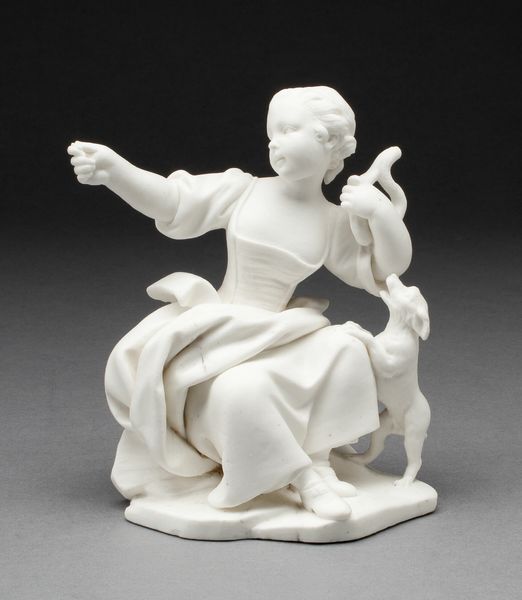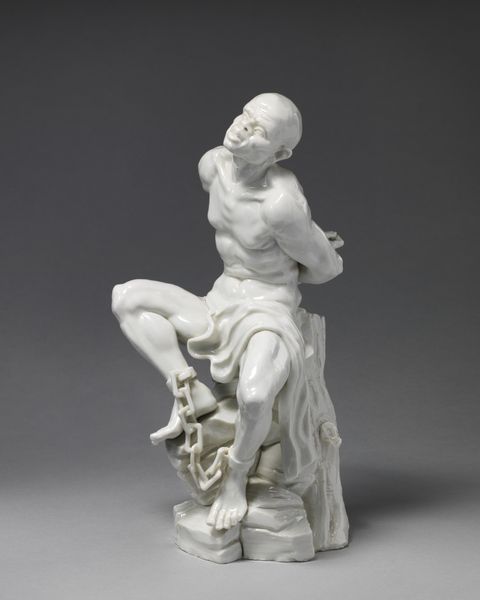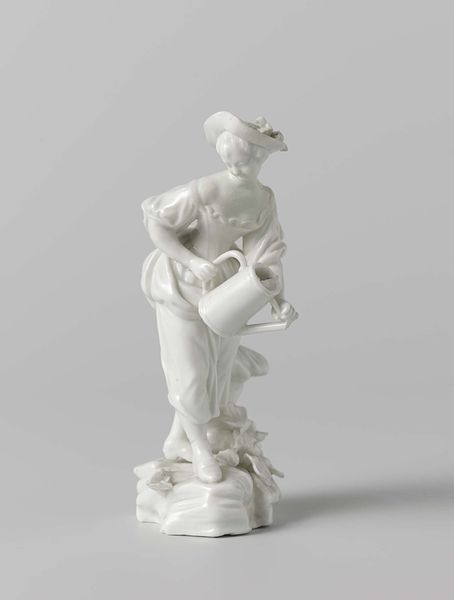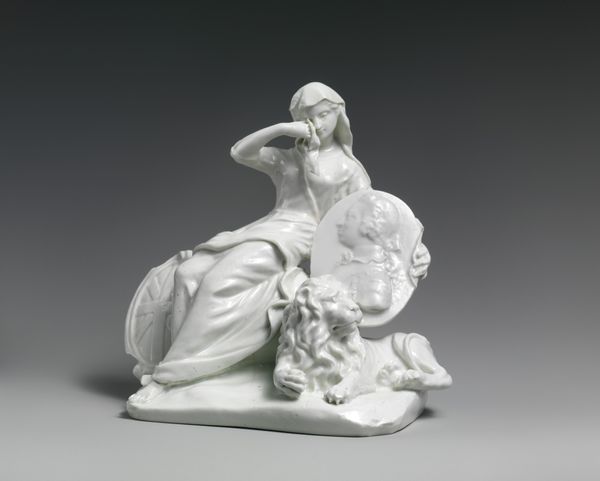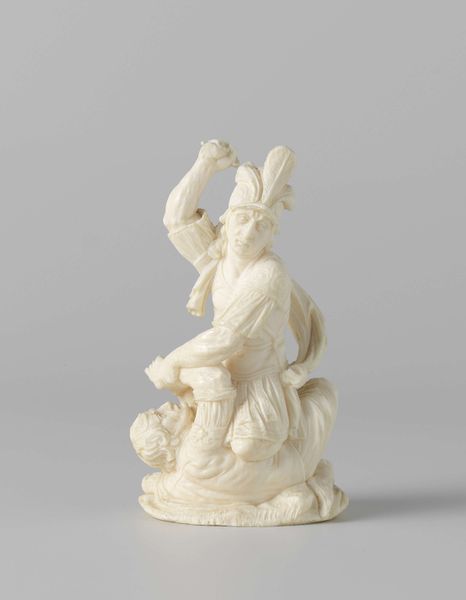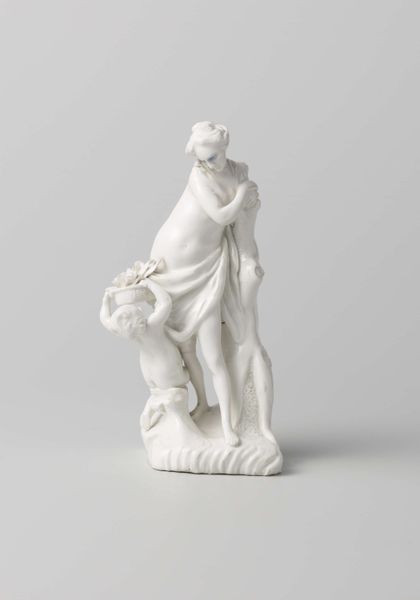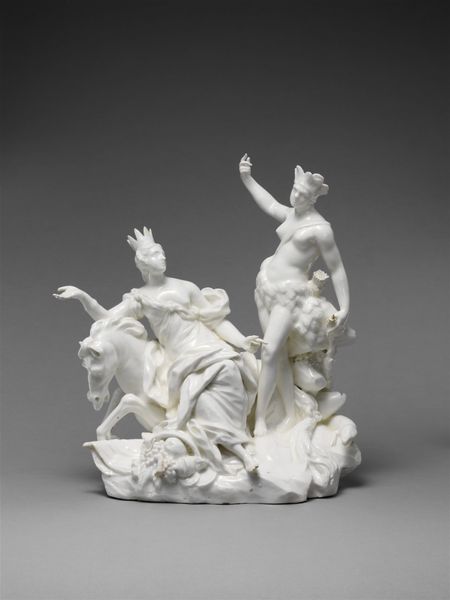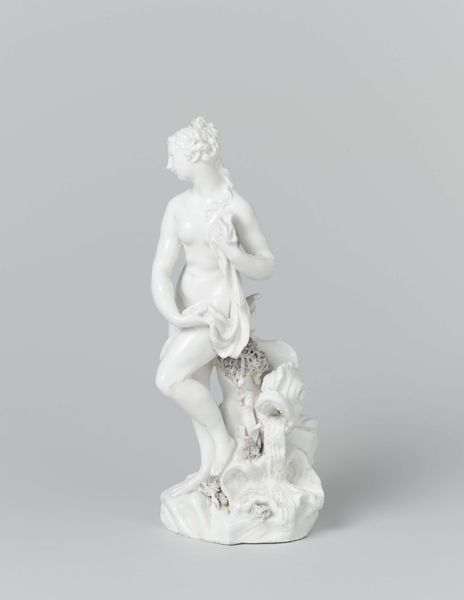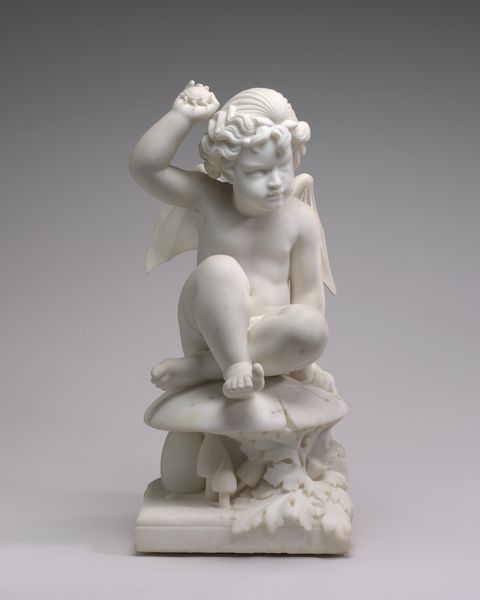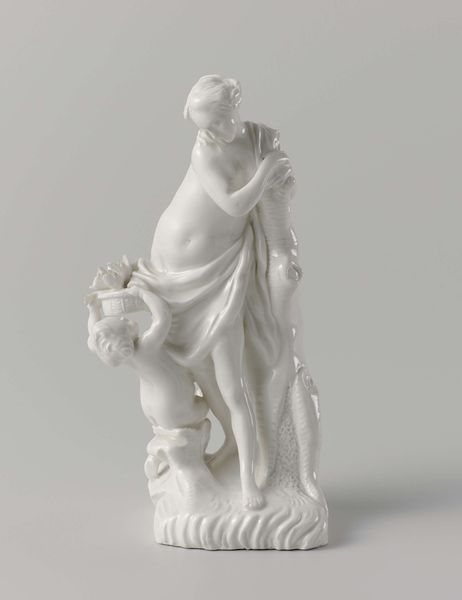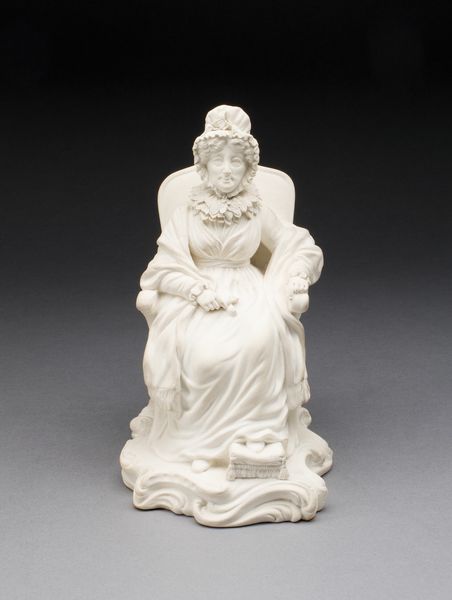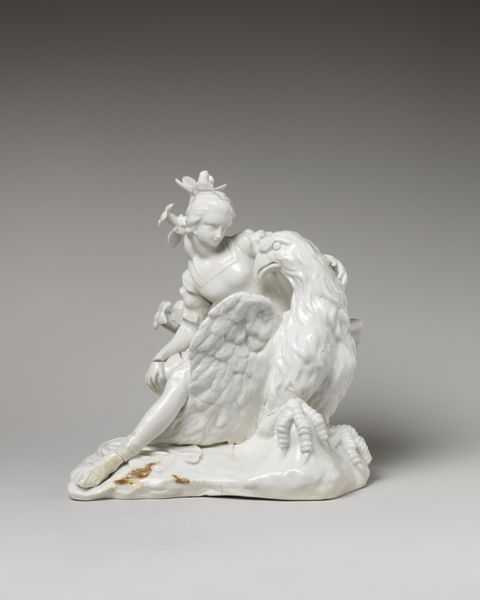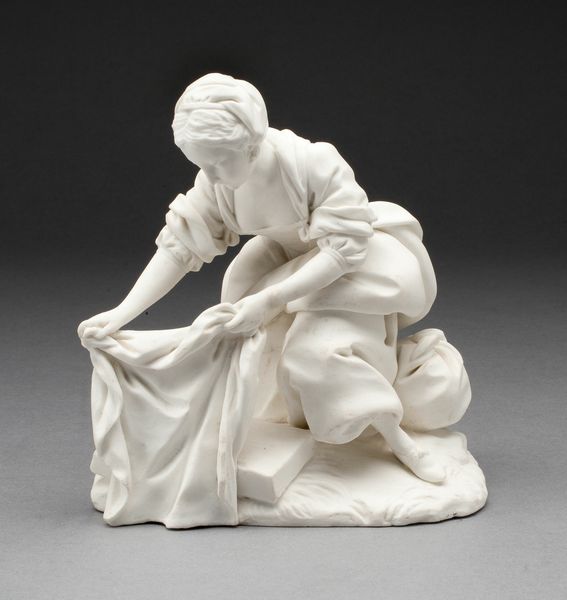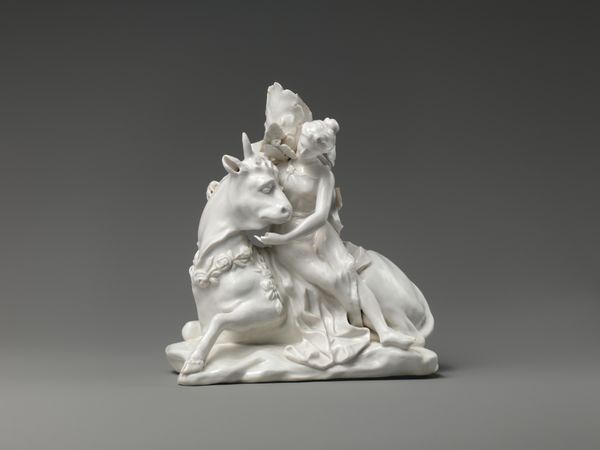
Figure of a River God (Fleuve) 1747 - 1750
0:00
0:00
ceramic, porcelain, sculpture
#
ceramic
#
porcelain
#
figuration
#
sculpture
#
history-painting
#
decorative-art
#
rococo
Dimensions: H. 31 cm (12 3/16 in.)
Copyright: Public Domain
Editor: Here we have the “Figure of a River God (Fleuve)," created around 1747 to 1750 by the Manufacture de porcelaine de Vincennes. It’s a beautiful porcelain sculpture. I’m really struck by the smooth, almost ethereal quality of the porcelain. What draws your attention when you look at this piece? Curator: My gaze is captured by the inherent qualities of the piece – its structure. Notice how the artist utilizes the curvilinear lines. They are particularly evident in the flowing beard of the figure, as well as the dolphin. This echoes Rococo aesthetics through a series of ‘c’ and ‘s’ curves that emphasize its flamboyant character. How does this affect your understanding of the form? Editor: It definitely enhances the sense of movement, especially with the water swirling around the base. It makes the figure seem less static. What do you think about the choice of pure white porcelain? Curator: The monochromatic palette simplifies the visual experience to highlight the sculpture's form, texture and its ability to model light. There's a semiotic relationship between the unpainted surface and a celebration of craftsmanship as it creates a strong focal point with emphasis placed entirely upon form and technique. How do you interpret the negative space in this piece? Editor: I see how the spaces in between create definition. Now that you mention the lines and light, it is clear that my eye dances around it! It truly shows off the porcelain material. I now have an elevated appreciation for its technique. Curator: I'm glad to have shed light on these principles and it helps you consider a different lens to contemplate artworks in general.
Comments
No comments
Be the first to comment and join the conversation on the ultimate creative platform.
